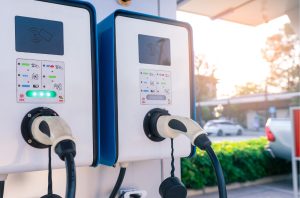Vulcan Heritage and Pyrox Heritage gas heaters have been emitting a toxic carbon monoxide above the permitted level if they are not properly installed and maintained. The potential fault was discovered in Victoria as a result of several laboratory tests. Therefore, all residents of Victoria using a Vulcan Heritage or a Pyrox Heritage gas heater in their property must have them serviced and checked by a trusted and certified gas plumber immediately.
Open-flued gas heaters, especially Vulcan Heritage and Pyrox Heritage are on the Energy Safe Victoria’s safety alert list, may increase indoor carbon monoxide levels under certain conditions. The combination of inadequate room ventilation, and operating bathroom or kitchen exhaust fans at the same time as an open-flued gas heater, may draw unsafe levels of carbon monoxide into the living area. The risk is further increased if the heater is faulty or the flue is blocked.
Energy Safe Victoria has established a number of failures with the product certification process. Open-flue heaters like the Pyrox and Vulcan Heritage space heaters are old technology and are not necessarily designed to operate in better-sealed, newer houses that may have less ventilation. In most older houses, carbon monoxide can simply escape via the heater’s flue or chimney. In addition to the servicing and replacement programs in place, all Vulcan Heritage or Pyrox Heritage space heaters have been withdrawn from sale and their manufacturer has ceased production.
What causes this?
Any gas heater, including Vulcan Heritage and Pyrox Heritage, has the potential to leak carbon monoxide into the indoor living area. This includes old and new heaters, central heating units, space heaters, wall furnaces and decorative appliances such as decorative log fires. Faulty or poorly maintained gas appliances present a very high risk of causing carbon monoxide poisoning of the people in your home. If you have a gas appliance in your home, or you are a landlord who rents out homes with indoor gas appliances, ensure they are serviced every two years to minimise the risk of faults occurring.
Carbon monoxide is a colourless, odourless, tasteless and highly poisonous gas that is produced when natural gas or LPG burns. The human body doesn’t recognise when carbon monoxide is present, which means it can easily kill you – it’s often called ‘the silent killer’ for this reason.
How often should space heaters be checked?
A space heater is designed to heat a particular space rather than the entire house. For example, a space heater in a living room is designed to heat the living room only. Indoor gas appliances, especially space heaters, should be checked by a qualified gas plumber every two years.
Open flue heaters, like the Vulcan Heritage or Pyrox Heritage space heater, are old technology that is not compatible with many new or renovated homes having less natural ventilation.
Who is at risk?
All people and pets are at risk of harm from carbon monoxide if exposed.
Children, pregnant women and unborn babies, older people and those with chronic illnesses are at increased risk from carbon monoxide exposure. People may be exposed to carbon monoxide as a result of a fault or blockage of any type of gas heater or decorative log fire. This risk is reduced with regular biannual servicing.
What are the symptoms of Carbon Monoxide poisoning?
Carbon monoxide is an odourless, colourless gas that may cause a range of symptoms including headache, nausea and vomiting, flushing, muscle pain, weakness, shortness of breath, dizziness, coordination difficulties, confusion, or chest pain. Symptoms are nonspecific and can be mistaken for a flu-like illness or even food poisoning. Very high levels of carbon monoxide can cause loss of consciousness, seizures and death.
Long-term exposure to low levels of carbon monoxide can also lead to impaired thinking and concentration, emotional lability, irritability and impulsiveness.
Are you being affected by carbon monoxide?
If you feel alright when you are out in the fresh air but experience any of the symptoms above when using a gas appliance or heater in your home, seek immediate medical attention and tell your doctor that you suspect carbon monoxide poisoning. To determine if there is any carbon monoxide in your blood, the doctor will need to do a blood test. If the results confirm there is carbon monoxide in your blood, stop using your gas appliances at home immediately and organise for a licensed gas plumber to check and service them.
Extreme carbon monoxide poisoning may lead to confusion, loss of consciousness (this can occur quickly if the level of carbon monoxide is high) and even death.
What should I do?
If you have one of these heaters, do not use it until it can be serviced by a qualified gas plumber. A complete service should include testing for carbon monoxide spillage, an inspection of the flue and ventilation. In the meantime, please use alternative sources of heating. DO NOT bring outdoor gas appliances inside such as a patio heater. This is dangerous and could also lead to carbon monoxide poisoning.
Contact the manufacturer Climate Technologies to arrange for a service of the heater and assessment of the installation environment by a qualified gas plumber (to be appointed by Climate Technologies) for private home owners. Climate Technologies will provide a $150 rebate towards the cost. And for public housing tenants or owners with gas heating can contact the Department’s Housing hotline on 1800 148 426 for information.









